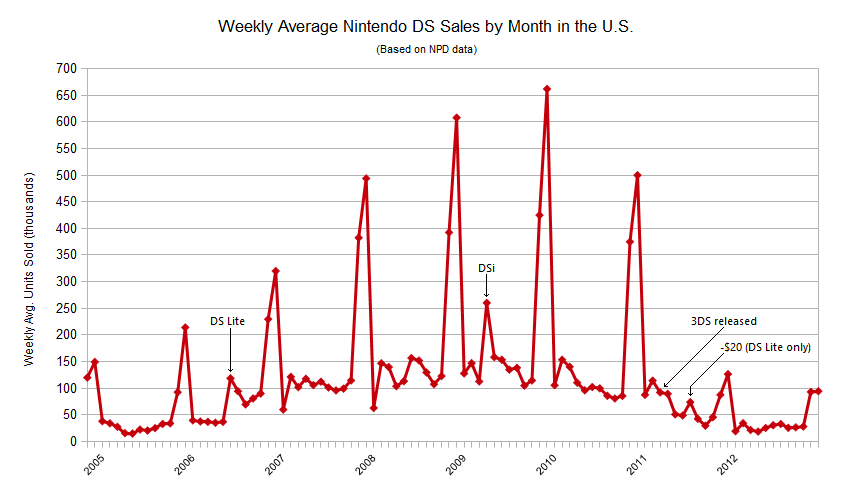Shadow1980 said:
I believe I did as recently as late last year suggested the possibility that 2019 could be the Switch's peak year in the U.S., considering that, except for the DS, no Nintendo system has ever peaked past its third full year in the U.S. (which I consider 2017 to be a full year for the Switch since its launch week/month makes up for the first eight weeks of the year). I know I did back in the December NPD thread point out that the Switch was exhibiting the telltale signs of cresting its peak, with the system first experiencing appreciable YoY growth in Q4 2018, then said growth going on a downward trend. Without exception, when a Nintendo system saw those kinds of declines in quarterly YoY growth, they soon moved into YoY declines in quarterly sales and never recovered, meaning they passed their peaks. We never saw steady declines in YoY growth in Nintendo systems followed by a sudden, massive reversal of course. I viewed January and February as mostly likely confirming my hypothesis that 2019 may have been the peak year as they were both down YoY from 2019. Now, the Jan.+Feb. period was down only by a modest 6.6%, and March was almost certainly going to make up for it and produce one last quarter of YoY growth due to AC, but generally I expected the overall trend for this year to continue to be YoY declines. The anomalous growth in all hardware sales due to COVID-19 threw those predictions out the window, with the Switch being up a staggering 140% in Q2 (the PS4 & XBO were up 51.3% and 68.6% in Q2, respectively, nearly all of that due to the big initial spike in April). With the Switch being up some 1.75M units YTD so far, there's now pretty much zero chance that 2020 won't be peak year. The Switch would have to sell no more than about 2.7M for the Aug.-Dec. period just for 2020 to be flat, and that would require YoY drops that are too large to be plausible (at least -39%). Even assuming more modest YoY drops for the Aug.-Dec. period as a whole (say, -15%), we should expect no more than half of the current surplus over last year to be depleted. But had COVID never been a thing, I do believe we would have seen the Switch be down for at least the May-July period (April by itself may have been up somewhat YoY as a residual effect of AC), and that whatever net gains over 2019 that AC may have produced for the year so far would have been completely erased and then some before year's end. I think the Switch may have sold only 6-6.5M units this year had it not been for COVID-19. Unfortunately, there's no way to test this since I'm not Rick Sanchez and can't simply hop to an alternate 2020 where the only difference was no coronavirus outbreak. We're stuck with our own reality where COVID-19 affected everything, including spending habits. Nobody expected people to have an extra $1200 in their pockets this spring (in addition to their tax refunds for those that had one), and, to my knowledge, nobody expected April and Q2 in general to have such a massive increase over last year. |
We can't attribute Switch's sales solely to COVID-19 though, and ignore the colossal impact of Animal Crossing, which has basically become a cultural phenomenon and brought in huge swathes of new consumers to the platform.
As I and others said last year, it was and is a fundamental mistake to base Switch forecasts on the performance of past Nintendo systems as it is totally different from any of them.
I've been saying this for years as forecasts based on past systems have consistently underestimated the Switch.
Last edited by curl-6 - on 26 August 2020















































